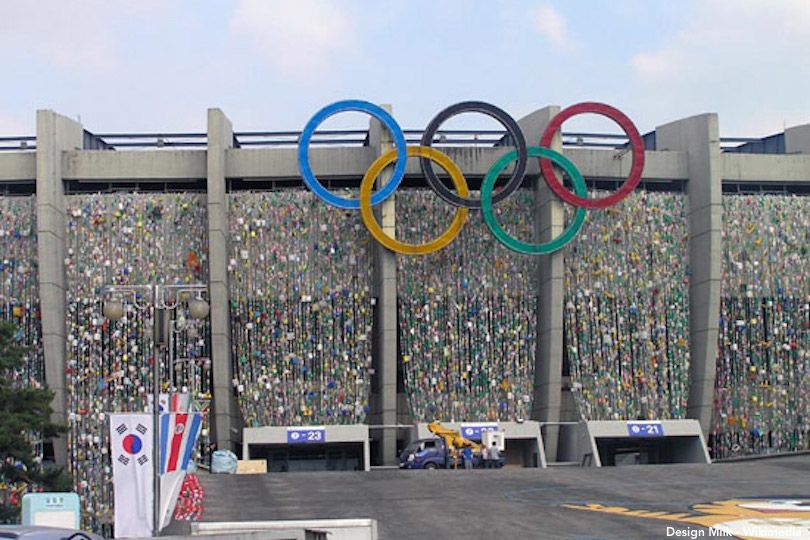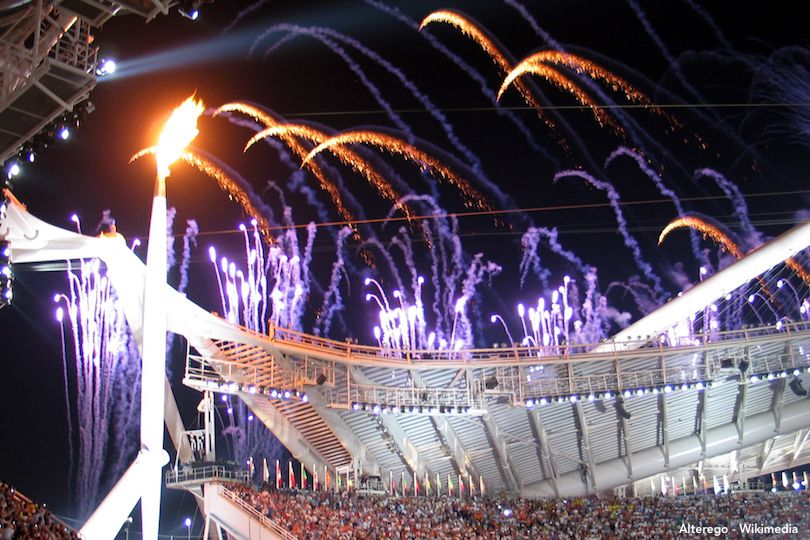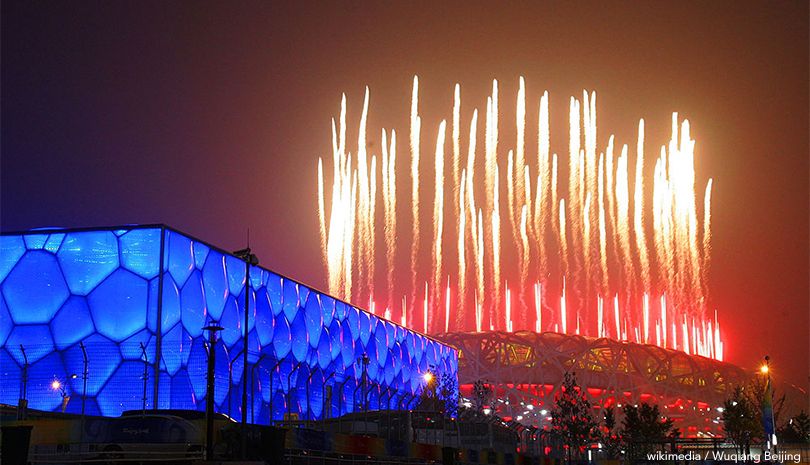The Olympics are over. After the flame has been extinguished in Rio, what do the Brazilians have to look forward to? Besides the massive debt from the cost of hosting the Games? How about an opportunity to use the Olympics as a springboard to develop into a world sports power -- a nation that's competitive in sports other than soccer and volleyball.
All Brazil has to look to is how the host nations during the past three decades have performed in the subsequent Olympics. And there's no better example than Great Britain's impressive output in Rio. Four years after Team GB collected 65 medals in London, it actually managed two better in Rio. The 27 golds won by British athletes put them second in the medal standings, ahead of China, Russia and Germany and behind only the United States.
And while there are some high-profile British winners -- such as Justin Rose and Andy Murray collecting golds in men's golf and tennis, respectively, and Mo Farah pulling off the 5,000- and 10,000-meter double for a second consecutive Olympics -- Team GB's triumph is noted as much for its depth as for its breadth. Britain's 67 medals came from 19 different sports.
The fact is that the London Games really served as a springboard for the British athletes, who have made a remarkable comeback after hitting the nadir a decade and half before. At the 1996 Atlanta Olympics, Britain won just one gold from a paltry 15 total medals, good for 34th place in the standings, tucked between Ethiopia and Belarus.
But since winning the bid to host the London Games, and thanks to a national lottery that helps funding Olympic sports programs, Britain has now eclipsed Russia and Germany as the top sports power in Europe. And it's poised to stay there for a while.
Britain is hardly alone in this. In the past 30 years, every nation but one has won a record number of medals while hosting the Summer Olympics, and most of them have sustained that success afterwards. Our research excludes the United States (because the U.S. has always been a sports superpower, home or away) and dates back to Seoul 1988 because the previous two Summer Games in Los Angeles (1984) and Moscow (1980) had distorted medal standings resulting from boycotts.
Here's a quick look at how each host nation has performed since 1988:
South Korea, 1988

In 1984, South Korea won 19 medals with six golds, though that total was inflated because of the Soviet/Eastern Bloc boycott. But there's no question South Korea has become a legitimate sports power since winning a record 33 medals (12 gold) while hosting the Games in Seoul in 1988. In the subsequent seven Olympics, South Korea has consistently hovered around the top 10 in the medal standings and has averaged nearly 28 medals at each Games in that span.
Spain, 1992

The Barcelona Games in 1992 was an unqualified success for an emerging Spanish nation that was still coming out of the shadows of four decades of Franco rule. After winning just nine medals in the two previous Olympics combined, Spain claimed a record 22 medals (13 gold) in Barcelona. Spain has averaged nearly 16 medals in the six Olympics since, now solidly in the Olympics' upper middle-class.
Australia, 2000

Relative to its population (23 million in 2015), Australia has always been an overachiever in the Olympics. But the sports-mad nation outdid itself while hosting the Sydney Games in 2000, winning a record 58 medals (16 gold). It actually managed one more gold in the Athens Games four years later, and it's never failed to finish in the top 10 of the medal standings in the four following Olympics.
Greece, 2004

While Greece won a record 16 medals (six gold) at the 2004 Games in Athens, it's the only host nation in our study period that failed to sustain that success. Greek athletes have won just 12 medals combined in the next three Olympics, with zero golds in either Beijing (2008) or London (2012). The massive cost overrun of hosting the Olympics and the country's subsequent economic meltdown have not been helpful for Greek athletes' continued development.
China, 2008

To be sure, Communist China has been a sporting power since joining the Olympics for the first time in L.A. in 1984. China has finished outside of the top four of the medal standings just once (11th in Seoul 1988) ,and in its crowning achievement in Beijing, the Chinese won 51 gold medals, beating second-place United States by a staggering 15. China finished second to the U.S. in London and missed out on second in Rio by one gold medal to Great Britain.
Great Britain, 2012

British athletes achieved something in Rio that no other host nation in our study period has done: Winning more medals than they did as hosts. Their 69 medals were the most by a British team since collecting an absurd 146 at the 1908 London Games (when only 22 nations participated). Great Britain had not won double-digit gold medals from 1920-2000, but now has done it in the last three consecutive Olympics.
So where will Brazil go from here? Its 19 medals and seven golds from Rio are both all-time bests, as is its 13th-place finish in the medal standings. But more worrying for Brazil is that of all the recent Olympics hosts, its situation most resembles that of the Greece, with massive political turmoil and a nasty recession still currently afflicting its economy.
We won't know how Brazilian athletes will respond until at least four years later in Tokyo, and beyond.
-- Samuel Chi is the managing editor of RealClearSports.com and proprietor of College Football Exchange. Follow him on Twitter at @ThePlayoffGuru.
More Olympics:
-- Lolo Jones: I'm Not Hope Solo
-- How Simone Biles Got Started In Gymnastics -- It Was By Accident
-- Perfect Way To Train For Decathlon? Why There's No Such Thing





